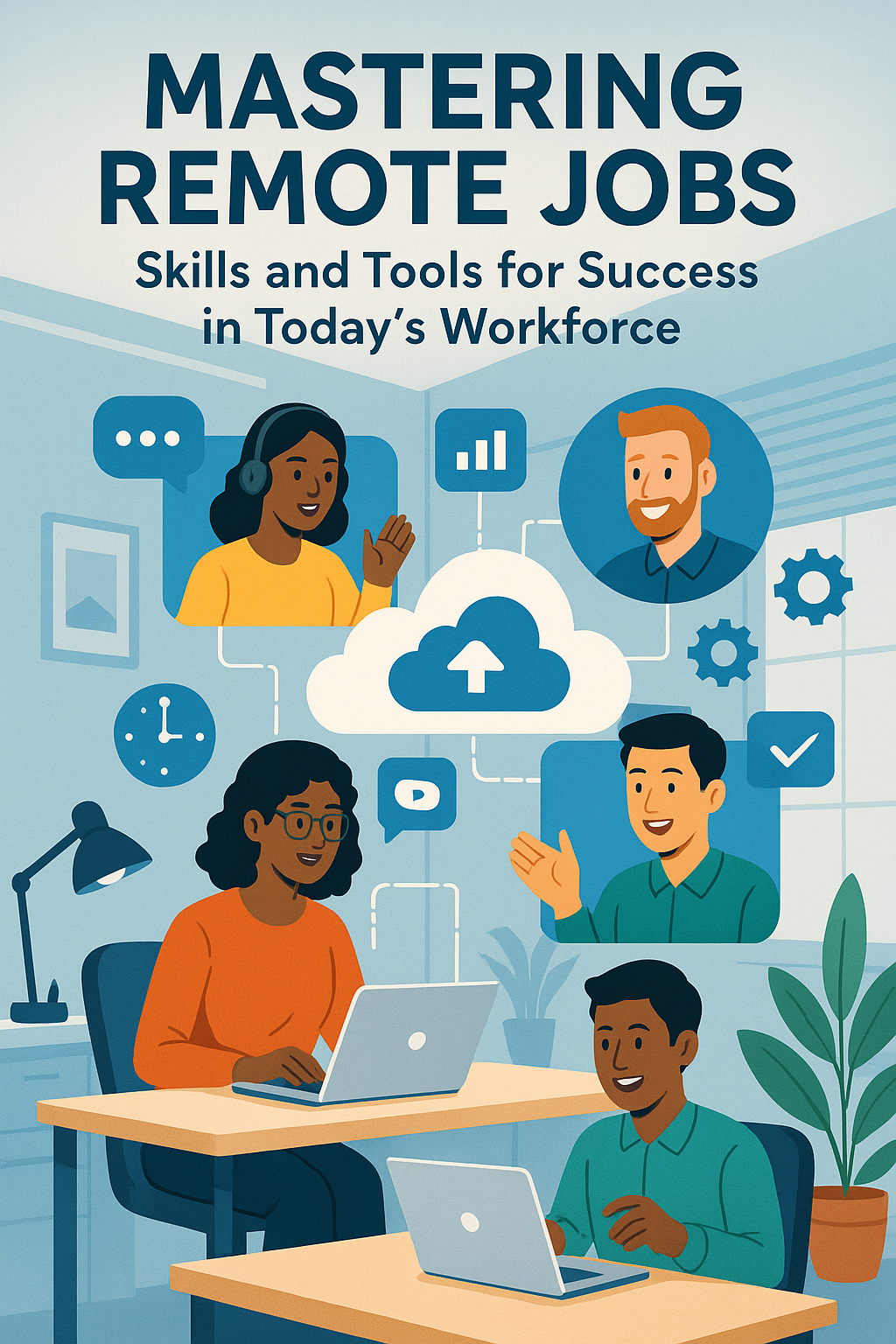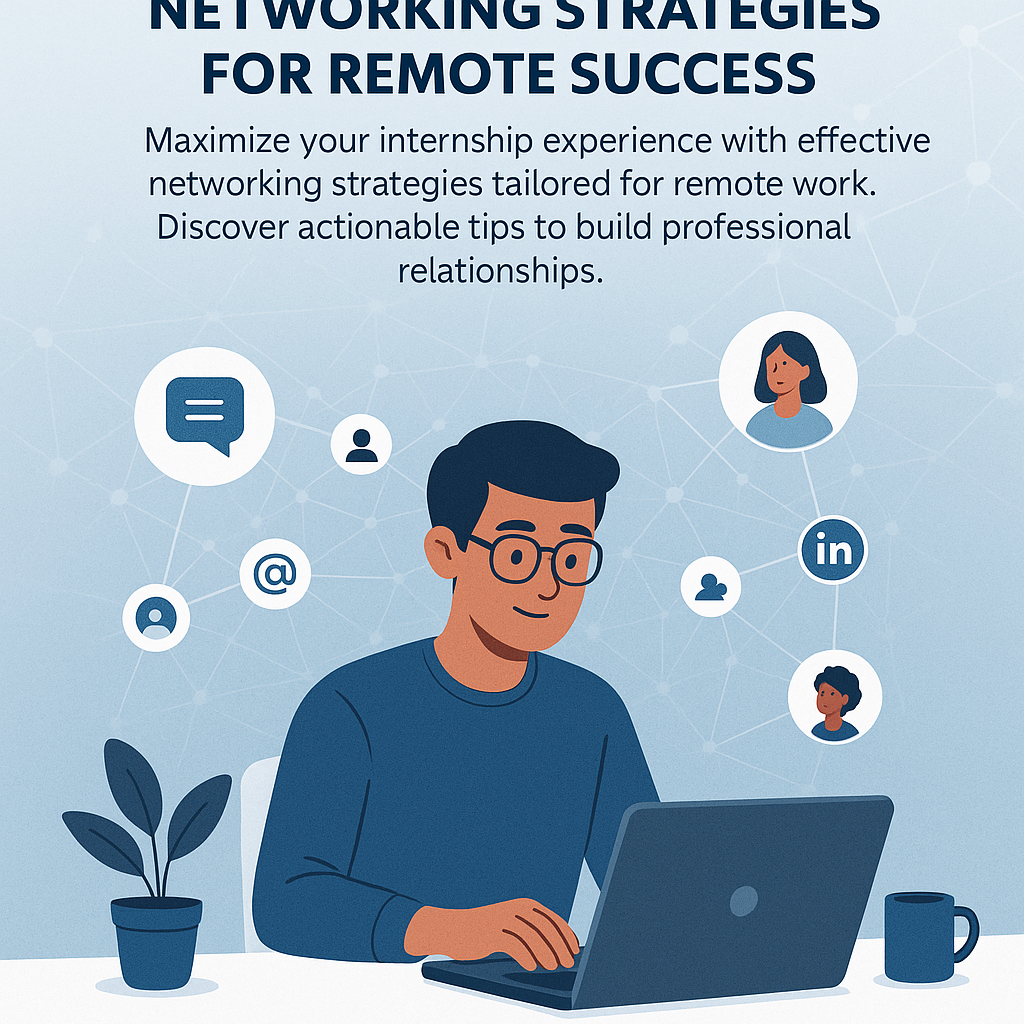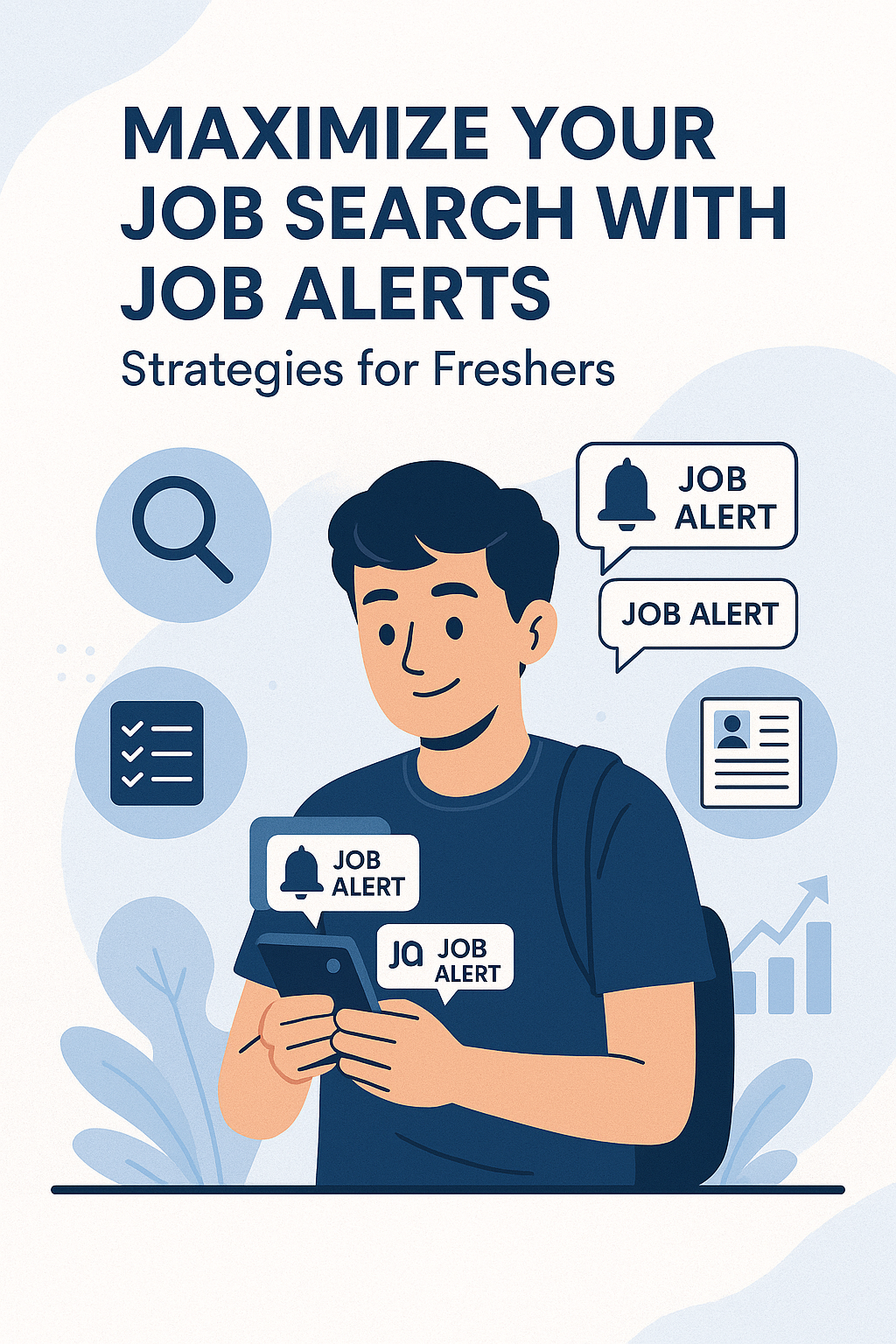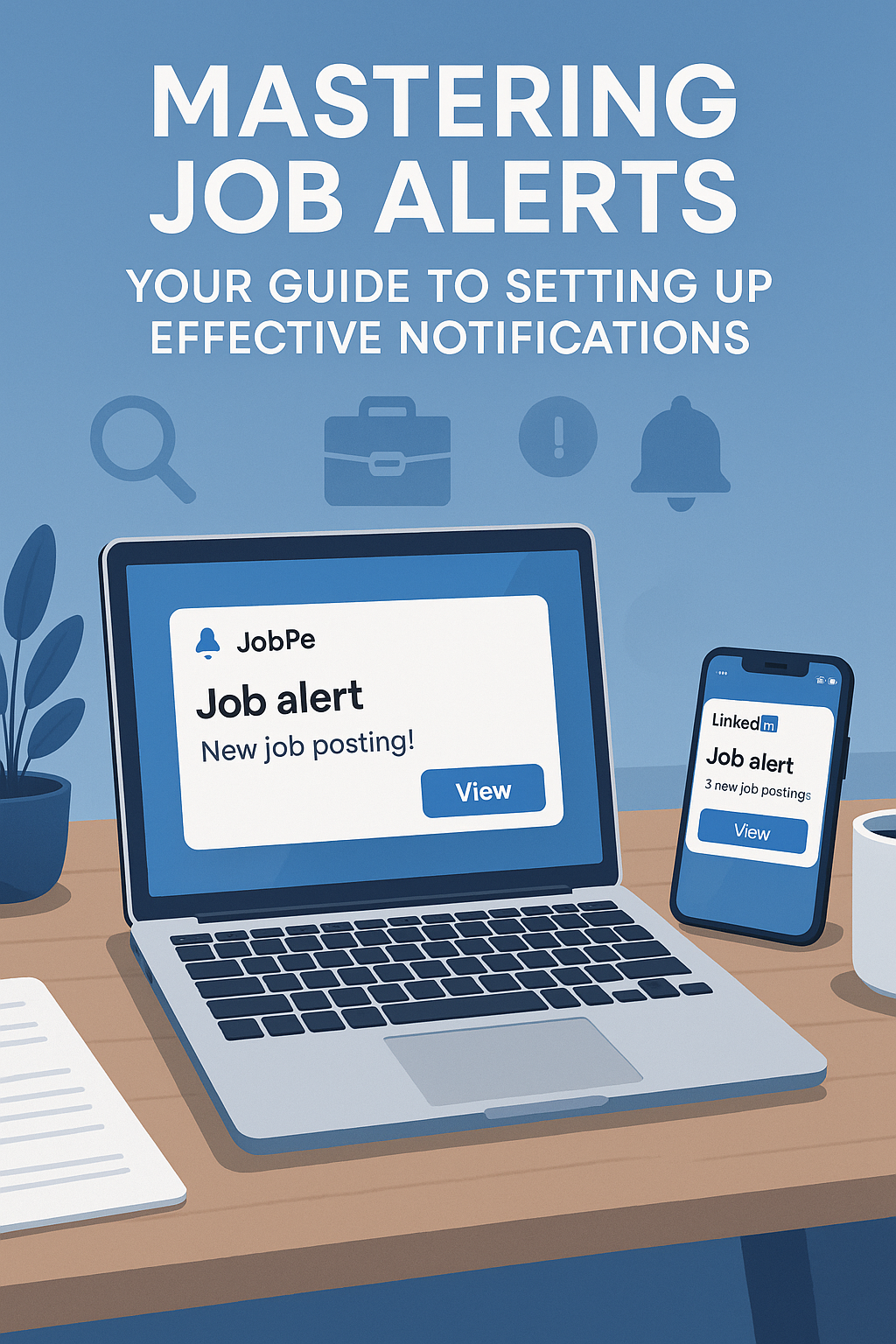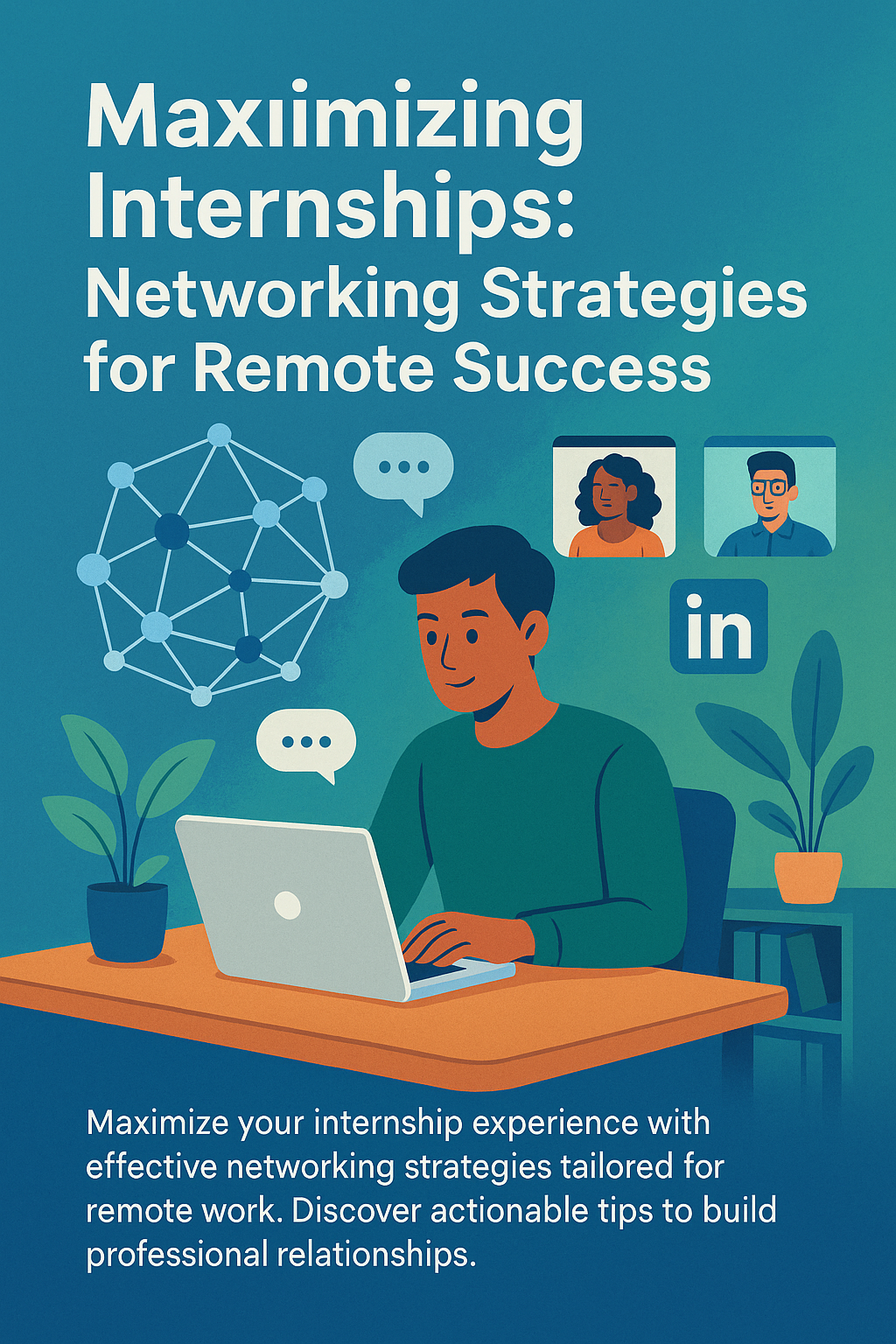
Maximizing Internships: Networking Strategies for Remote Success
Internships have long been a crucial stepping stone for students and recent graduates aiming to launch their careers. However, with the rise of remote work, the landscape of internships has drastically changed. How can you ensure that your internship experience is beneficial, especially when networking opportunities are limited? This comprehensive guide will delve into strategies for leveraging remote internships to build a professional network effectively, focusing on internships as a primary keyword while incorporating networking in a remote setting and LinkedIn networking messages as supporting themes.
Understanding the Importance of Internships
Internships serve as a bridge between academic learning and professional application. According to the National Association of Colleges and Employers (NACE), 69% of interns receive at least one job offer after completing their internship. Moreover, internships allow candidates to develop industry-specific skills, understand workplace dynamics, and most importantly, connect with professionals in their fields.
The Unique Challenges of Remote Internships
- Limited Face-to-Face Interaction: Traditional internships often provide opportunities for in-person networking, informal conversations, and spontaneous mentorship. Remote internships strip away this element, making it crucial for interns to be proactive in seeking connections.
- Technology Barriers: Not every intern may be tech-savvy or comfortable navigating online platforms designed for networking. This can lead to feelings of isolation, making it more challenging to build relationships within the company.
- Lack of Visibility: In a remote environment, it can be challenging for interns to showcase their achievements, making it harder to be recognized by peers or management.
Understanding these challenges is key to navigating remote internships successfully. In the following sections, we will discuss effective strategies to overcome these hurdles through targeted networking efforts.
Building Your Networking Strategy
Creating a networking strategy is essential in maximizing the benefits of your internship. Below, we outline actionable steps to create a robust networking plan.
1. Set Clear Networking Goals
Before diving into networking, identify what you hope to achieve. Your goals might include: * Understanding industry trends * Finding a mentor * Securing a future job offer * Building relationships with peers
Action Steps:
- Write down your goals and prioritize them.
- Share these goals with your supervisor or mentor; they can guide you toward relevant connections.
2. Leverage LinkedIn Effectively
LinkedIn is the go-to platform for professional networking. For remote interns, it’s paramount to use this tool strategically.
Setting Up Your LinkedIn Profile:
- Use a professional photo.
- Write a compelling headline that includes your current role and aspirations.
- Optimize your profile summary to reflect your skills and interests, explicitly mentioning your internship experience.
- Actively seek endorsements from colleagues and supervisors.
Networking Via LinkedIn:
- Sending Connection Requests: When sending connection requests, always include a personalized message. You can mention common interests or mutual connections.
- Engaging with Content: Commenting on posts from industry leaders is a simple way to start conversations. Share insights or ask questions to showcase your knowledge.
3. Participate in Virtual Networking Events
Many organizations and industries host virtual networking events. These events are excellent opportunities to meet professionals, ask questions, and expand your knowledge base.
How to Make the Most of These Events:
- Prepare Your Elevator Pitch: Develop a succinct introduction about yourself, including your background and interests.
- Follow Up: After the event, follow up with individuals you connected with via LinkedIn or email, reiterating your interest in staying in touch.
4. Seek Informational Interviews
Informational interviews are conversations where you request insights from a professional about their career path, industry trends, or company culture. This strategy can help build deeper connections and understanding.
How to Request Informational Interviews:
- Reach out through LinkedIn or email with a clear, polite request. Mention that you are currently an intern and express your enthusiasm for learning from their experience.
Steps to Conduct Informational Interviews:
- Prepare thoughtful questions in advance.
- Respect the professional’s time and keep the conversation succinct (15-30 minutes).
- Follow up with a thank-you message, maintaining the relationship.
Crafting Effective Networking Messages
When reaching out to professionals, particularly via LinkedIn, crafting effective networking messages is crucial. Here are tips for creating compelling outreach:
1. Personalization is Key
Always personalize your message. This shows you’ve done your research and value the recipient’s time.
2. Be Clear and Concise
Introduce yourself and get to the point quickly. State your reason for reaching out without rambling.
3. Highlight Common Ground
Mention any shared interests, mutual connections, or their recent work that you admire.
Example LinkedIn Networking Messages:
- Initial Connection Request:
"Hi [Name], I’m currently an intern at [Company/Field]. I came across your profile while researching leaders in [Industry], and I admire your work on [specific project]. I’d love to connect and learn more about your career journey!" - Post-Interview Message:
"Hi [Name], I really enjoyed our conversation today regarding [specific topic]. Thank you for your insights on [specific points]. I would love to keep in contact and continue learning from you!"
Building Connections Within Your Internship
Once you secure an internship, focus on building relationships within the organization.
1. Engage Actively with Your Team
Being an active participant in team meetings and discussions showcases your enthusiasm and willingness to learn. If possible, contribute ideas and seek feedback on your work.
2. Seek a Mentor
A mentor can provide guidance on navigating your career path, industry insights, and potential job opportunities. Don’t hesitate to ask a peer or a supervisor if they would be available for guidance throughout your internship.
3. Document Your Achievements
Keeping track of your contributions during the internship will help you communicate effectively when networking. For example, if you implemented a new process that improved efficiency, quantify that success and share it in conversations or LinkedIn posts.
The Power of Follow-Up
Follow-ups are crucial in maintaining the relationships you build during your internship. Here are some guidelines:
1. Timing is Everything
Follow up within a week after first meeting someone. Express gratitude for their time and mention specific topics you discussed.
2. Use Multiple Channels
Utilize LinkedIn, email, or even handwritten notes to reconnect. Each medium will highlight your sincerity and professionalism.
3. Keep It Professional
Tailor your follow-up messages to reflect discussions and insights shared, focusing on strengthening the relationship rather than asking for favors immediately.
Leveraging Internship Experience on LinkedIn
Your LinkedIn profile should reflect your internship experiences and achievements accurately. It’s not just about what you did, but showcasing the results.
1. Update Your Experience Section
List your internship title, company name, and duration. Include bullet points highlighting key responsibilities and achievements. Quantify your contributions with numbers whenever possible (e.g., "increased social media engagement by 30%").
2. Share Updates and Achievements
Regularly share updates about your internship journey, industry insights, and professional achievements. This not only keeps your network informed but also reflects your active engagement in your career.
3. Ask for Recommendations
Don’t hesitate to request recommendations from supervisors or colleagues who can speak to your contributions and work ethic. Recommendations enhance your profile’s credibility and visibility.
Conclusion
Internships are a vital aspect of career development, especially in today’s remote working world. By implementing effective networking strategies, you can maximize your internship experience and establish meaningful connections. Remember, networking is not just about collecting contacts; it’s about fostering relationships that can help you in your future career.
Next Steps
- Apply the networking strategies discussed in this article during your internship.
- Actively utilize LinkedIn to connect and engage with industry professionals.
- Follow up with your connections to maintain and strengthen your network.
By approaching your internship with a strategic networking mindset, you’re not just enhancing your chances of landing a job; you’re building a professional network that will support your career for years to come.

Creative Content Writer



